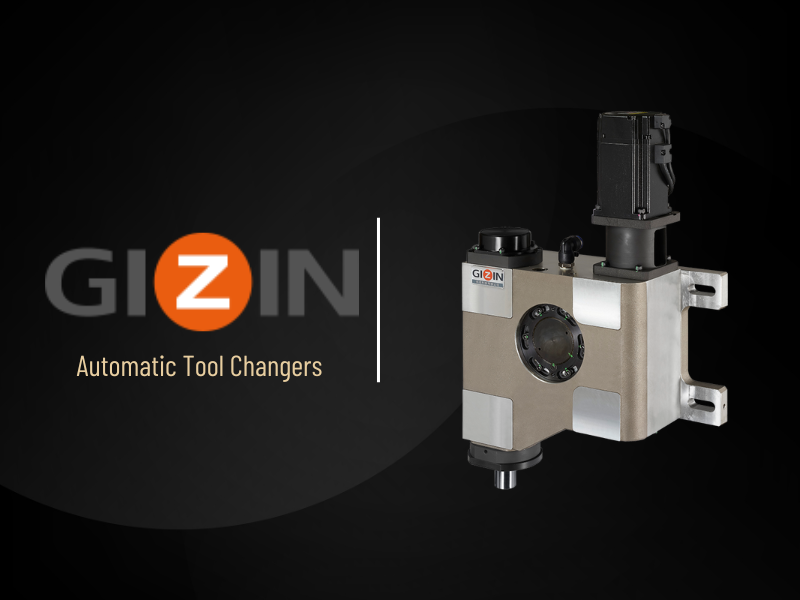
The Future of Automatic Tool Changers for CNC Machining
In the dynamic world of CNC machining, efficiency and precision are paramount. Gizin International Co., Ltd., a leader in this field since 2001, has been at the forefront of advancing automatic tool changer (ATC) technology. This article explores the impact of ATC technology, particularly focusing on Gizin's innovative contributions and the future direction of this crucial component in CNC machinery.
Introduction to Automatic Tool Changers
ATC systems are integral to modern CNC machining centers. They allow for rapid, precise, and automated changing of tools, significantly enhancing productivity and accuracy. This automation minimizes manual intervention, reduces downtime, and enables complex machining operations with ease.
Gizin's Approach to ATC Innovation
Gizin International's journey in ATC technology has been marked by continuous innovation. Our products cater to a wide range of CNC machining centers and lathes, not only in Taiwan but across the globe, with a substantial presence in the Japanese market. Gizin's approach combines cutting-edge technology with a commitment to quality, safety, and environmental sustainability.
Technological Advancements in ATC Systems
Gizin's ATC systems stand out for their robust design, high reliability, and adaptability to various machining environments. Key features include:
- Speed and Precision: Gizin's ATCs are designed for rapid tool changes, reducing cycle times and increasing throughput.
- Durability and Reliability: Built to withstand rigorous industrial use, these systems ensure consistent performance over extended periods.
- Customization and Flexibility: Understanding diverse industry needs, Gizin offers customized solutions for different CNC machines, enhancing their versatility.
- Safety and Ergonomics: Prioritizing operator safety, Gizin's ATCs incorporate features that minimize the risk of accidents and facilitate ease of use.
The Impact on Industries
The introduction of advanced ATCs has revolutionized several industries.
- • Automotive Industry: In the automotive sector, ATCs have been pivotal in enhancing the manufacturing of engine parts, transmission systems, and other complex components. They enable the production of parts with intricate designs and tight tolerances, which are essential for modern vehicles. This precision is critical in ensuring the safety, performance, and longevity of automotive products. Furthermore, ATCs have made it possible to automate the production line, significantly increasing output while maintaining consistent quality.
- • Aerospace Industry: The aerospace industry demands exceptionally high standards of precision and reliability, given the safety-critical nature of its products. ATCs facilitate the production of aircraft components like turbine blades, structural elements, and landing gear parts. The ability to switch between tools swiftly and accurately is crucial in machining parts made from advanced materials like titanium or carbon fiber composites. Additionally, the precision offered by ATCs helps in adhering to the stringent regulatory standards and specifications required in aerospace manufacturing.
- • Electronics and Automation Sectors: In the electronics industry, where miniaturization is a constant trend, ATCs contribute significantly to the production of intricate components like printed circuit boards (PCBs) and semiconductor devices. These tools allow for high-precision drilling, cutting, and engraving, which are essential in creating the minute and complex patterns found in electronic components. In automation, ATCs are used to enhance the efficiency of robotic systems and automated assembly lines, enabling the rapid production of various electronic devices with high consistency and lower error rates.
Future Directions in ATC Technology
Looking ahead, ATC technology is poised for further innovation. Key areas of focus include:
- Integration with IoT and AI: Incorporating smart technologies for predictive maintenance and optimization of tool usage.
- Enhanced Material Handling: Developing ATCs that can handle a broader range of materials with increased efficiency.
- Sustainability Focus: Emphasizing eco-friendly designs and operations in line with global sustainability goals.
- Customization for Emerging Industries: Adapting ATCs for new sectors such as renewable energy and advanced electronics.
Conclusion
Gizin International's journey in the realm of automatic tool changers reflects a blend of innovation, quality, and a vision for the future. As industries evolve, the role of ATCs will become increasingly vital. Gizin, with its commitment to excellence and innovation, is well-positioned to lead this transformative journey, driving advancements that redefine the boundaries of CNC machining.

